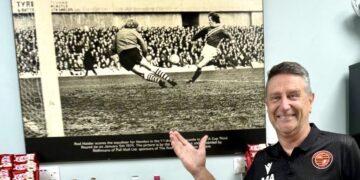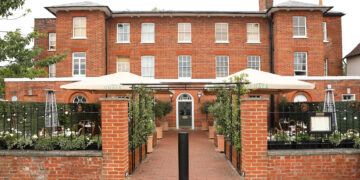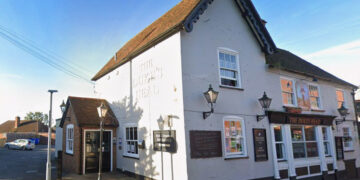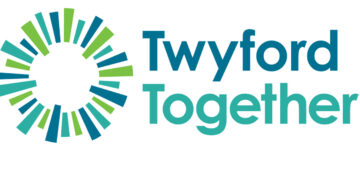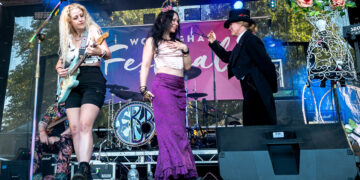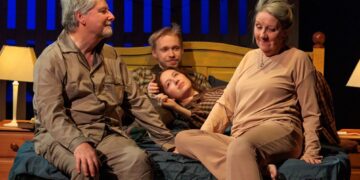 I WILL be honest: my knowledge of American politics before the mid-90s is poor at best. In fact, like most children of the 1980s I imagine, most of my education had come from watching Forest Gump.
I WILL be honest: my knowledge of American politics before the mid-90s is poor at best. In fact, like most children of the 1980s I imagine, most of my education had come from watching Forest Gump.
I had heard of the Watergate scandal, and knew that it involved President Richard Nixon, but quiz me on the details and the ramifications, and I would be stumped. So perhaps I would be the ideal audience for Wokingham Theatre’s latest production of Peter Morgan’s Frost/Nixon.
In a recent interview with director Jessica Hadleigh, she revealed that she wanted audiences to come with an open mind, to try to suspend any preconceived impressions of either man in order to see where they were both coming from. She wanted the audience to see them not as celebrities or scandalous historical figures, but as people, as men reaching a make-or-break point in their careers. As I had no impressions whatsoever, I sat in ready anticipation.
The play opens with a video, documenting key moments in the lead-up to the now infamous interview in March 1977. For those of us with no prior knowledge, this video helped to set the scene, however the text that flashed up on the screen often disappeared again before you could finish reading it, often before reaching the crucial part. Still, I picked up the jist of what was going on: Vietnam, protests, secret alliances, all pretty bad stuff.
The action itself opens on Jim Reston (Ioan Havard) introducing the audience to the current setting. It is August 1974: President Nixon (Christopher Lyne) announces his resignation, while across the other side of the world in the UK, journalist David Frost (Lloyd White) is enjoying success with his regular chat shows both at home and abroad in Australia. Both men are at a turning point in their careers: Nixon has become to first president to resign from office, while Frost is trying to crack the holy grail of the American market. Both men need an opportunity: Nixon to tell his side of the story, and Frost to find a story that will elevate him to new heights.
That opportunity soon presents itself, when the ambitious Frost contacts Nixon’s agent, Irving ‘Swifty’ Lazar (Marc Reid), to arrange an interview with the disgraced former president, and at first his attempts are rebuffed. However, growing bored with retirement at his beach-side estate in San Clemente, California, Nixon reaches out to Lazar, explaining that he misses the excitement of Washington, and will do anything to put the record straight and get back to the politics that he loves. Frost’s request is accepted, with strict conditions that the Watergate scandal of 1972 be confined to just 25 per cent of the interview.
Frost quickly assembles a team of researchers to help him dig through Nixon’s term in office, and with the help of Reston, a political commentator with a particular axe to grind, and Bob Zelnick (Nigel Willetts), a political journalist, the men spend the next several months dissecting Nixon’s every move. Having secured the funds to the interview ($600,000, which even by today’s money is a hefty sum for an interview) from his own pocket, Frost is putting everything on the line. His future is depending on this single interview and the hope that a broadcaster and advertisers will pick it up. He has everything to lose.
The second half of the play opens with the two parties heading into the interview. In one corner, we have Nixon, Lazar and the President’s former aide, Jack Brennan (Austin Marshall), a no-nonsense ex-military officer who will go to any length to protect Nixon’s reputation. In the other corner, we have Frost, Reston and Zelnick, anticipating every answer, coiled and ready to strike at any slip-up. Nixon sees Frost as a nobody interviewer, wet behind the ears and of no real consequence to him. Frost sees Nixon as a bumbling old man, who can be easily coerced into an apology for the mistakes he made during his term in office. Both men have completely underestimated their opponent, and a battle is about to ensue that will go down in history.
Lyne has Nixon down to a T, from his droll accent and mannerisms, to his unwavering sense of propriety. Despite everything that has gone before, he maintains that the President commands a level of respect. White’s Frost conveys the new breed of interviewer, au fait with the importance of television, and intoxicated with the pull of fame. We sympathise with both men, even though they both have ugly traits to their characters.
Most people will know how the story unfolds, but to watch the to-ing and fro-ing of the interview from the wings is akin to that of a boxing match, a reference that comes up time and time again. We see Frost starting to develop a compassion for Nixon, while his team continue to pile on the pressure, urging him to pull no punches and to get the confession that the audience will be so desperate to hear. Nixon wins the first three rounds, while Frost delivers the killer blow in the fourth. Ultimately, Nixon’s downfall is his humanity, he finally cracks and gives Frost what he needs.
The production is kept simple throughout, with the main focus of the interview platform looming throughout as a constant reminder of why we are all here. Lyne and White deliver fantastic performances, never breaking character despite a couple of stumbles here and there. The costumes are picked appropriately for the era, with the female supporting characters dressed in typical glamorous 70s attire, and the men in stylish suits, with not a platform sole or bell-bottom in sight.
I came away from the performance eager to know more. Having confessed my ignorance at the start, my curiosity was now suitably aroused to make me spend the remainder of my weekend researching the background of the play. Judging by my chat with Jessica Hadleigh, I’m pretty sure this is what the production team wanted to achieve when they set out with this performance, so a huge credit to them for making the history of American politics accessible and interesting for even this, the most naive of patrons.
Frost/Nixon runs until Saturday, May 2 at The Wokingham Theatre. For tickets and more information visit www.wokingham-theatre.org.uk.
By Gemma Davidson






